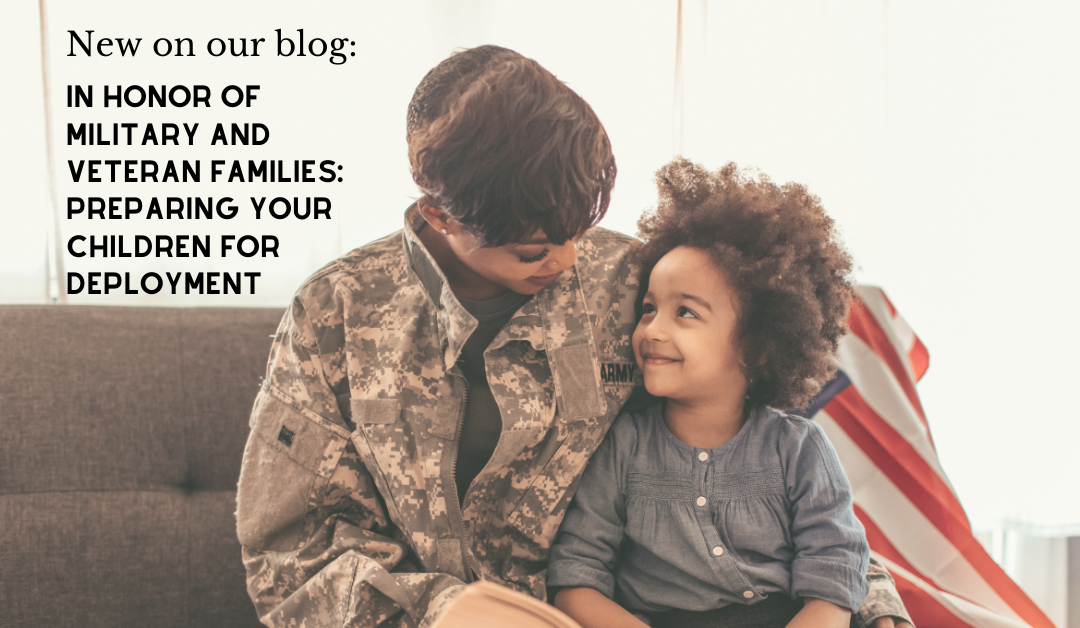While preparing for deployment, many families tend to focus on the logistics, finances and preparations – which are all valid tasks to complete. However, it’s equally important to remember that your children will need mental and emotional support and guidance throughout your deployment. Routines will be altered, quality time with family will look different and many changes will occur. As we honor military families this Veteran’s Day, we offer advice on how to prepare for the deployment cycle.
Pre-deployment
It’s important to invest ample time and effort into your pre-deployment plans, as they will help set guidelines while one parent is away. First, prepare yourself for the emotions and questions your children may have. Speak to other parents who have experienced similar situations and ask for advice on how to go about these situations. Also, discuss with your partner the best possible way to explain deployment to your children, especially if they’re younger. While your children may have fears for the upcoming changes, remember that open communication is a great way to express and process concerns, emotions and plans. Speak with them about their emotions; share plans for regular communication; and discuss changes that may occur.
While deployed
For the parent who is deployed:
Your continued support – no matter how big or how small – will serve as a comfort to your partner at home. Staying in contact with your family as much as possible will help them feel included, updated and remembered. This may be difficult with varying schedules, so don’t be afraid to be honest with your children, letting them know there will be times when you can’t be in touch with them. But, reassure them that you think of them every day. Consider sending personalized messages or letters in those moments to reassure your children of your strong bond.
For the parent who is home:
Maintain your usual schedule as much as possible. In addition, establish new routines with your children, such as sending letters or packages to your partner. Although this can’t be done frequently, it does help children understand that the deployed parent is still thought of frequently and is a key part of the family – even while away. Maintaining household rules is also important – don’t let your children get away with doing things they wouldn’t normally do if your partner was home. Consistency and routines are key.
Post-deployment
Your transition back into your household is heavily impacted by the effort you put in before and during your deployment. However, even with preparation, your children may have mixed emotions. Ease back into your routines and be open and understanding of your children’s feelings. Stay close to home in the days after your arrival and reacquaint yourself with your family’s daily routines. Parents who remained home should also give the returning parent adequate space and time to readjust and transition back into home involvement. And remember, everyone needs alone time after big changes – even children. Give them the time and support they need to return back to a pre-deployment environment.
If you or your child is in need of professional guidance and support before, during or after deployment, our team of certified staff members and clinicians are here to help. Through our counseling services, we can assist those experiencing hardships and find positive solutions. For more information, contact us at 508-427-5362 or click here.

